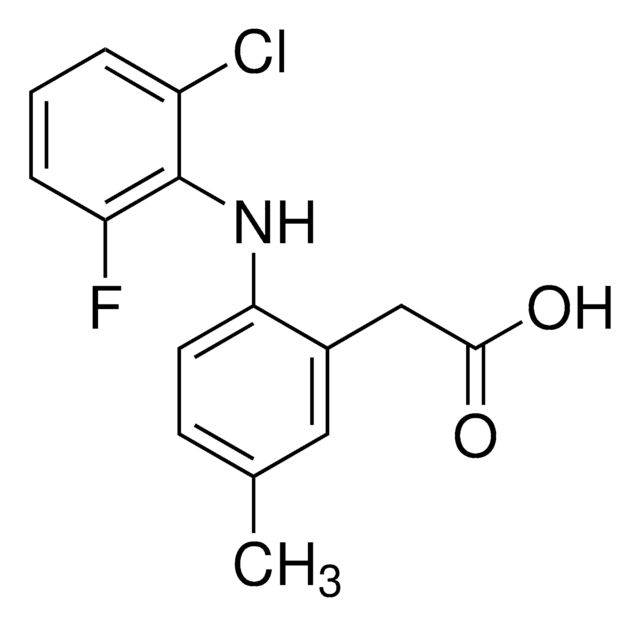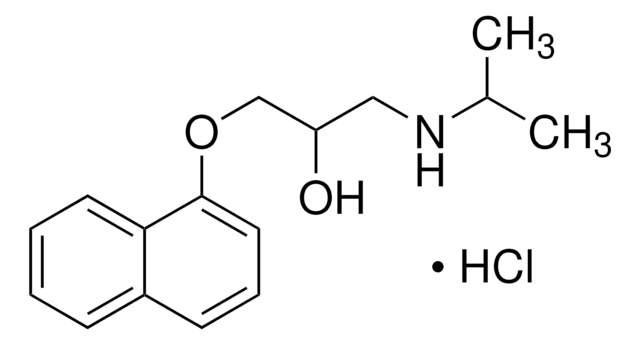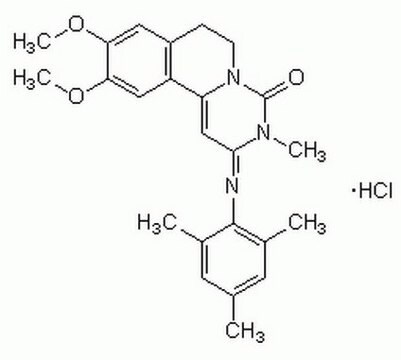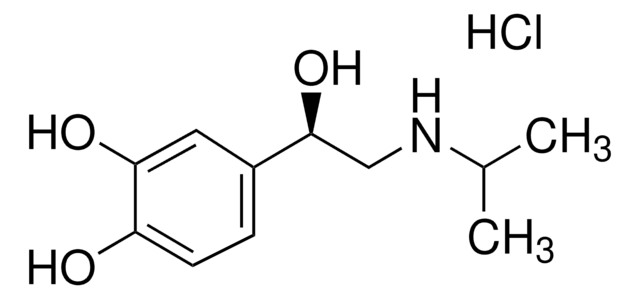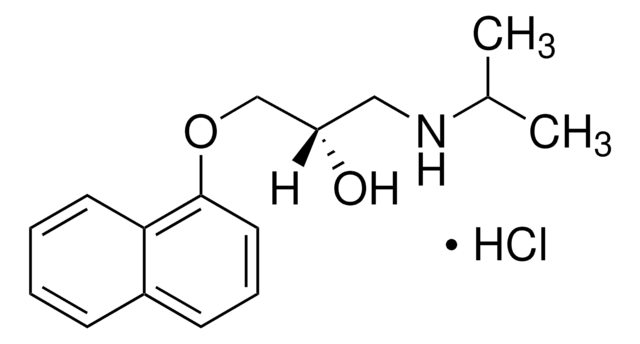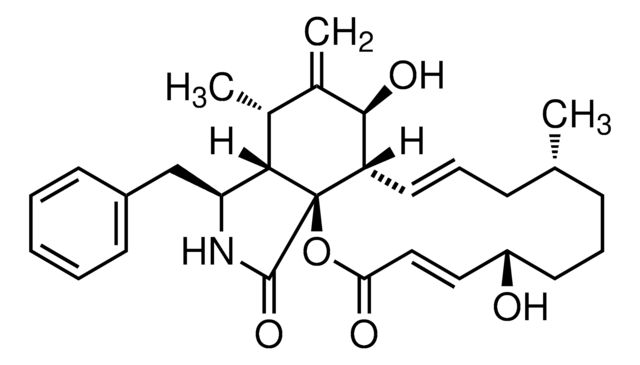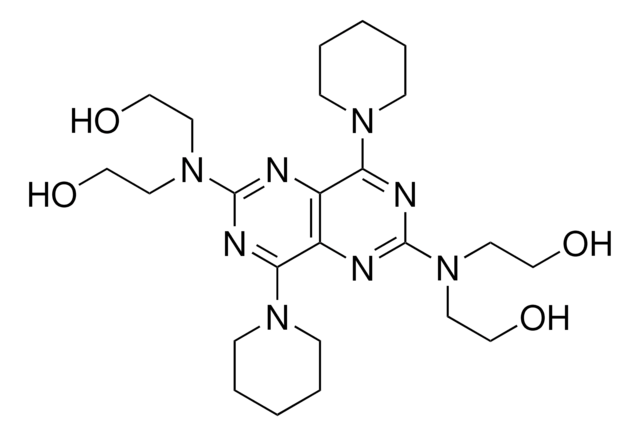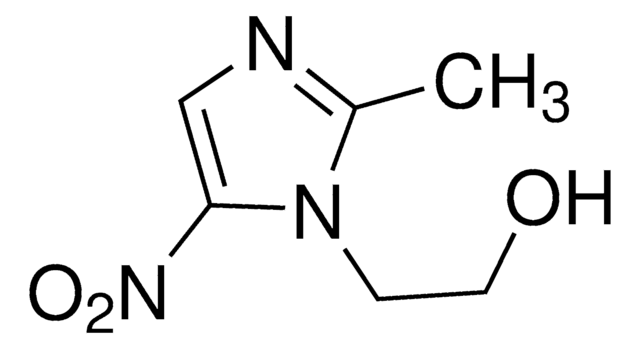About This Item
Recommended Products
Quality Level
Assay
≥98%
form
powder
SMILES string
Cl[H].COc1cc2CCN3C(=O)N(C)C(\C=C3c2cc1OC)=N\c4c(C)cc(C)cc4C
InChI
1S/C24H27N3O3.ClH/c1-14-9-15(2)23(16(3)10-14)25-22-13-19-18-12-21(30-6)20(29-5)11-17(18)7-8-27(19)24(28)26(22)4;/h9-13H,7-8H2,1-6H3;1H/b25-22+;
InChI key
DTCZZBVPTHVXFA-OSMRDGEFSA-N
Gene Information
human ... PDE3A(5139) , PDE3B(5140)
Application
Biochem/physiol Actions
Features and Benefits
Storage Class Code
11 - Combustible Solids
WGK
WGK 3
Flash Point(F)
Not applicable
Flash Point(C)
Not applicable
Personal Protective Equipment
Choose from one of the most recent versions:
Already Own This Product?
Find documentation for the products that you have recently purchased in the Document Library.
Related Content
Cyclic nucleotides, including cyclic AMP (cAMP), cyclic GMP (cGMP) and cyclic ADP-ribose, have been extensively studied as second messengers of intracellular events initiated by activation of GPCRs. cAMP modifies cell function in all eukaryotic cells, principally through the activation of cAMP-dependent protein kinase (PKA), but also through cAMP-gated ion channels and guanine nucleotide exchange factors directly activated by cAMP.
Our team of scientists has experience in all areas of research including Life Science, Material Science, Chemical Synthesis, Chromatography, Analytical and many others.
Contact Technical Service